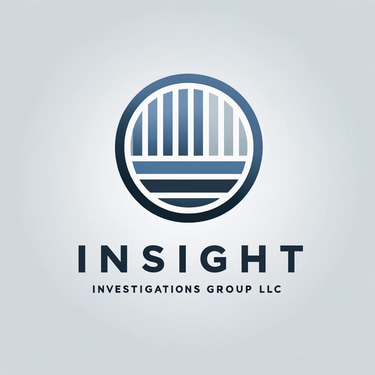The Many Faces of Surveillance: Applications Across the Private Investigation Industry
Explore the evolving role of surveillance in private investigations, from domestic cases and corporate fraud to criminal probes. Learn about cutting-edge technologies, ethical considerations, and real-life case studies showcasing its impact across the industry.


Surveillance has long been a cornerstone of the private investigation industry, evolving alongside technology and societal demands. From following unfaithful partners to uncovering large-scale corporate fraud, surveillance techniques are crucial tools for investigators. This article explores the various ways surveillance is applied across the private investigation sector, highlighting its importance, ethical considerations, and the cutting-edge technologies driving its effectiveness.
1. Domestic Investigations: Protecting Families and Uncovering Truths
Private investigators are often hired for cases that hit close to home. Domestic investigations typically involve surveillance to uncover evidence of infidelity, child custody violations, or hidden assets. These investigations rely on both traditional and digital surveillance methods:
• Infidelity Surveillance: Tracking a partner’s movements and activities to confirm suspicions of unfaithfulness. This may include following individuals to hotels, restaurants, or meeting spots.
• Child Custody Disputes: Verifying claims of abuse or neglect by monitoring interactions between a parent and child. This is often critical in court battles to determine custody arrangements.
• Hidden Asset Discovery: Surveillance helps locate assets like vehicles, properties, or luxury items that individuals may attempt to hide during divorce proceedings.
Surveillance in domestic cases is often conducted discreetly, with private investigators blending into the environment while collecting evidence through photos, videos, and written observations.
2. Corporate Surveillance: Safeguarding Businesses
In the corporate world, surveillance is indispensable for addressing fraud, theft, and employee misconduct. Companies hire private investigators to ensure their operations are secure and that employees adhere to policies. Key areas include:
• Workplace Theft: Monitoring employees suspected of stealing company assets, whether physical inventory or digital data.
• Workers’ Compensation Fraud: Identifying employees who falsify injury claims by documenting activities inconsistent with their claims, such as physical labor or recreational activities.
• Corporate Espionage: Investigating cases where trade secrets or intellectual property may have been stolen by competitors or disgruntled employees.
Corporate surveillance often involves the use of high-tech solutions such as GPS trackers, cybersecurity monitoring, and undercover operatives who integrate themselves into the workforce to gather intelligence.
3. Insurance Fraud Investigations
Insurance companies frequently partner with private investigators to identify fraudulent claims, which cost the industry billions annually. Surveillance in these cases is critical for documenting behavior that contradicts the claimant’s alleged injuries or losses. Examples include:
• Health Insurance Fraud: Monitoring individuals who claim to be incapacitated but are observed engaging in physical activities.
• Vehicle Accidents: Tracking individuals involved in staged accidents or those claiming exaggerated injuries.
• Property Damage Fraud: Verifying claims of property damage by assessing the actual circumstances and identifying potential false reports.
These investigations rely on visual evidence collected via long-term surveillance, ensuring the validity of the claim is accurately assessed.
4. Digital Surveillance: Navigating the Online World
The rise of social media and online activity has created new opportunities for surveillance. Private investigators use digital tools to monitor individuals and organizations in various contexts:
• Social Media Investigations: Examining public profiles for evidence of misconduct, such as posts or photos that contradict legal claims.
• Cyberstalking and Harassment Cases: Tracking individuals engaging in online threats or harassment to identify their real-world identities.
• Background Checks: Using social media and online records to verify individuals’ histories, affiliations, and behaviors.
Digital surveillance is a powerful tool, but it also raises ethical and legal questions. Investigators must navigate privacy laws to ensure compliance while gathering evidence.
5. Surveillance in Criminal Investigations
Private investigators often assist law enforcement or private clients with criminal cases, particularly when evidence is scarce or cases are complex. Common applications include:
• Locating Missing Persons: Using surveillance to trace individuals who have disappeared, whether voluntarily or under suspicious circumstances.
• Tracking Suspects: Monitoring individuals believed to be involved in criminal activities, such as theft, assault, or drug trafficking.
• Cold Cases: Revisiting old cases to gather new evidence or verify alibis through renewed surveillance efforts.
In criminal investigations, surveillance can involve tailing suspects, setting up hidden cameras, and conducting stakeouts to collect evidence that aligns with the client’s goals.
6. Advanced Surveillance Technology: Tools of the Trade
Modern surveillance methods have expanded significantly with technological advancements. Some of the most effective tools in the industry include:
• GPS Trackers: Used to monitor the movements of vehicles or individuals, GPS trackers provide precise location data essential for building timelines.
• Drones: Offering aerial views of hard-to-reach areas, drones are particularly valuable in large-scale investigations or for observing rural properties.
• Hidden Cameras: Discreet cameras installed in vehicles, homes, or public areas help capture candid behavior.
• Geofencing and Geolocation Tools: By analyzing mobile phone location data, investigators can track an individual’s movements without direct contact.
• Data Mining Tools: Leveraging databases and social media analytics to gather comprehensive profiles on individuals.
The integration of these tools into surveillance operations increases efficiency and accuracy, allowing investigators to deliver results more effectively.
7. Public Sector Surveillance: Bridging Gaps in Law Enforcement
Private investigators often work alongside law enforcement to provide additional resources and expertise in public sector cases. This collaboration is common in:
• Fraudulent Activity Investigations: Uncovering schemes involving identity theft, money laundering, or Ponzi schemes.
• Environmental Crimes: Monitoring illegal dumping or other violations of environmental laws.
• Witness Location: Tracking down witnesses for pending legal cases or missing persons reports.
Private investigators’ ability to operate independently often allows them to explore leads and gather evidence that public resources may not cover due to budget or staffing constraints.
8. Ethical Challenges in Surveillance
While surveillance is a powerful tool, it comes with ethical responsibilities. Private investigators must adhere to legal boundaries and respect privacy rights, avoiding practices such as:
• Unauthorized Recording: Installing surveillance devices without proper legal permissions.
• Invasive Tactics: Using methods that intrude into private spaces, such as inside homes or personal vehicles.
• Misrepresentation: Posing as someone else to gain access to restricted areas or information.
Maintaining ethical standards is essential for preserving the credibility of the private investigation industry and avoiding legal repercussions.
9. Surveillance and the Future of Private Investigation
As technology continues to evolve, the private investigation industry must adapt to new opportunities and challenges. Emerging trends in surveillance include:
• Artificial Intelligence (AI): AI-powered analytics can process large volumes of data quickly, identifying patterns and behaviors relevant to investigations.
• Wearable Cameras: Compact body cameras allow investigators to document interactions discreetly.
• Blockchain Investigations: Tracking cryptocurrency transactions and assets using blockchain analysis tools.
• Biometric Surveillance: Employing facial recognition and other biometric technologies to identify individuals.
These advancements promise to enhance the efficiency and accuracy of surveillance, enabling investigators to tackle increasingly complex cases.
10. Case Studies: Surveillance in Action
The following real-world examples highlight the impact of surveillance in private investigations:
• Cargo Theft Investigation: In Tampa, a private investigator used geolocation data to solve a cargo theft case. By geofencing the area and analyzing phone records, they identified suspects who worked for the company.
• Life Insurance Fraud: A family hired a private investigator to challenge a suspicious life insurance claim. Surveillance revealed that the person with power of attorney had falsified documents to cash out funds, leading to criminal charges and court action.
• Infidelity Case: A client suspected her husband of cheating. Using GPS tracking and discreet observation, the investigator confirmed an affair, resulting in a favorable prenuptial agreement during divorce proceedings.
These cases demonstrate the versatility and effectiveness of surveillance in achieving diverse investigative objectives.
11. Balancing Privacy and Public Interest
The debate over surveillance often centers on the balance between privacy rights and the need for transparency and accountability. In private investigation, this balance is particularly delicate. Investigators must navigate:
• Legal Regulations: Complying with local, state, and federal laws governing surveillance practices.
• Client Expectations: Meeting the client’s needs without overstepping ethical boundaries.
• Public Perception: Ensuring surveillance practices do not harm the industry’s reputation.
By prioritizing transparency and professionalism, private investigators can build trust with clients while maintaining ethical integrity.
12. Conclusion: Surveillance as the Backbone of Investigation
Surveillance is more than just following a subject or setting up a hidden camera—it’s a multifaceted discipline that requires skill, technology, and ethical judgment. Whether uncovering personal truths, protecting corporate interests, or assisting in criminal cases, surveillance plays an integral role in the private investigation industry.
As the field continues to evolve, embracing technological advancements while respecting ethical standards will be key to sustaining the value of surveillance. For private investigators, mastering this art means not only collecting data but also weaving it into compelling narratives that deliver justice, clarity, and resolution for their clients.


